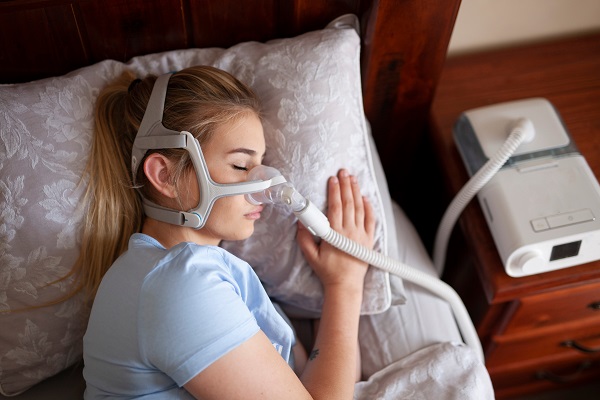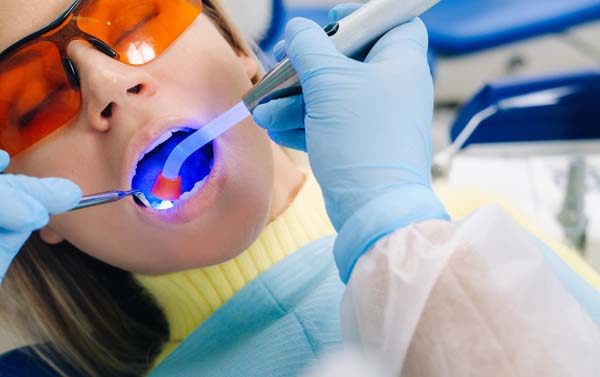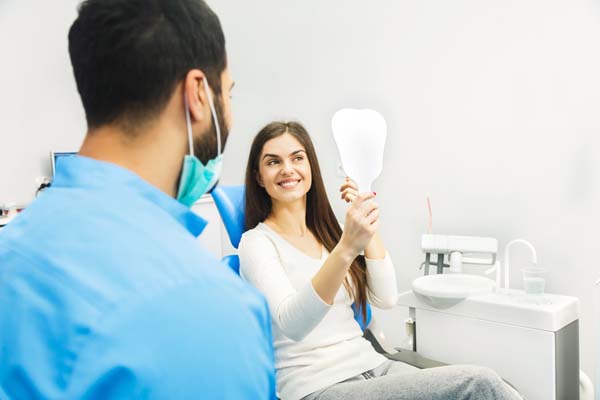FAQs About Oral Appliance Treatment for Sleep Apnea

Sleep apnea makes it difficult to stay asleep throughout the night and often leads to fatigue during the day, along with other negative health consequences. Fortunately, there is an effective way to treat sleep apnea with oral appliance treatment. This is a collection of common questions about oral appliance treatment for sleep apnea and their answers.
Common questions about oral appliance treatment
General dentists are often asked about the benefits of an oral appliance, how the treatment process works and what signs indicate the need for an oral appliance for sleep apnea. By learning more about these questions, you can decide if sleep apnea is appropriate for you.
What is an oral appliance for sleep apnea?
An oral appliance for sleep apnea refers to a device that is worn in the mouth while asleep to prevent the airway in the back of the throat from closing, which is the cause of obstructive sleep apnea (OSA). The two most common types of oral appliances are CPAP machines and mandibular devices.
CPAP machines involve a filter and humidifier and a mask. Mandibular advancement devices are becoming increasingly popular. They are similar to a nightguard, although they are strategically crafted to keep the back of the throat open by keeping the tongue and jaw in the proper position while asleep.
What are the benefits of an oral appliance?
Obstructive sleep apnea leads to notable health concerns, many of which derive from sleep deprivation. Oral appliance treatment allows for a better night of sleep each night. The benefits of oral appliance treatment include:
- Improved general health
- Better sleep each night
- Improved focus during the day
- Easy to use and travel with
- A better night of rest for your partner
Oral appliance treatment may also relieve common symptoms of obstructive sleep apnea, such as morning headaches and a lack of productivity during the day.
How do I get an oral appliance for sleep apnea?
Many dentists offer oral appliances for obstructive sleep apnea. During a consultation visit with a dentist to discuss sleep apnea treatment, they can go over all available treatment options, including mandibular advancement devices and CPAP machines. They can discuss the pros and cons of each available option and make a treatment recommendation based on the preferences and specific needs of the patient.
When should I visit the dentist for sleep apnea treatment?
If symptoms of obstructive sleep apnea become problematic, visiting a dentist who offers sleep apnea treatment is encouraged, especially if you have already tried a CPAP machine and not gotten the results that you desire. A dentist is more likely to recommend and provide a mandibular advancement device, which many patients find easier to use than a CPAP machine.
Learn more about sleep apnea treatment today
If you are looking for relief from sleep apnea, then get in touch with our friendly dental team by phone or email. We are glad to address your questions and arrange a time for you to visit with our team to discuss all available treatment solutions.
Are you considering sleep apnea treatment in the Tyler area? Get more information at https://www.timsmithdental.com.
Check out what others are saying about our dental services on Yelp: Sleep Apnea in Tyler, TX.
Recent Posts
Obstructive sleep apnea is a disorder many people suffer from. Essentially, it is when breathing stops while sleeping. While this is considered a serious medical condition, the consequences of having sleep apnea usually do not pose a health risk. However, sometimes it can be dangerous, so you should always speak to your doctor upon noticing…
According to the American Sleep Apnea Association, approximately 25 million Americans have some form of obstructive sleep apnea, which is a chronic disease that involves frequent pauses in a person's breathing during sleep. Most health warnings about this condition focus on how it can lead to high blood pressure, heart disease and diabetes, but apnea…
Practicing preventive dentistry at home allows you to reap many benefits for your general health. Brushing and flossing every day is a basic way of keeping your mouth in good shape. Having healthy teeth and gums helps support your whole body’s health. If you want to find out why good everyday dental hygiene is important…
Preventive dentistry deals with dental procedures to prevent dental issues, and it is critical for anybody who wants to keep their natural teeth for the rest of their life. Dentists used to spend most of their time treating dental issues rather than preventing them.Due to people's overly busy schedules, it is easy to put off…


